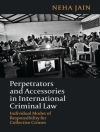The goal of this study is to provide a general overview and thorough analysis of how the European Court of Human Rights deals with tort law issues such as damage, causation, wrongfulness and fault, the protective purpose of rules, remedies and the reduction of damages when applying art 41 of the European Convention on Human Rights (ECHR).
These issues have been examined on the basis of a comprehensive selection and detailed analysis of the Court’s judgments and the results compared with different European legal systems (Austria, Belgium, England and Wales, France, Germany, Hungary, Ireland, Italy, Poland, Romania, Scandinavia, Spain, Switzerland and Turkey), EC Tort Law and the Principles of European Tort Law.
The introduction of art 41 (ex art 50) ECHR in 1950 as a compromise and the issues it raises now, the methodological approaches to the tort law of the ECHR, the perspectives of human rights and tort law and public international law as well as the question of whether the reparation awarded to victims of ECHR violations can be considered real ‘just’ satisfaction are addressed in five special reports (two of which are also available in German). Concluding remarks try to summarise the outcome.
Despre autor
Attila Fenyves, Professor of Civil Law, University of Vienna; Ernst Karner, Professor of Civil Law, University of Vienna; Helmut Koziol, Managing Director of the European Centre of Tort and Insurance Law, Vienna; Elisabeth Steiner, Judge of the European Court of Human Rights in Strasbourg.












